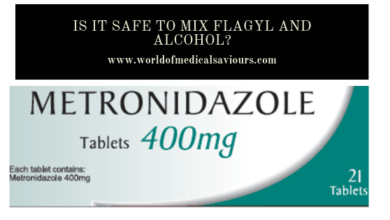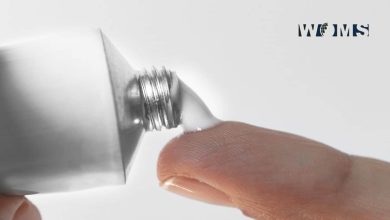Benazepril

Benazepril belongs to a class of drugs called angiotensin-converting enzyme (ACE) inhibitors. It is primarily used for the treatment of high blood pressure (hypertension) and congestive heart failure.
It works by inhibiting the action of an enzyme called ACE, which is involved in the production of a hormone called angiotensin II. Angiotensin II causes blood vessels to constrict, leading to an increase in blood pressure. By blocking the action of ACE, benazepril helps relax and widen the blood vessels, thereby reducing blood pressure.
In addition to its use for hypertension and heart failure, it may also be prescribed to prevent kidney damage in people with diabetes and high blood pressure, and it can be used in some instances of chronic kidney disease.
How should this medicine be used?
Benazepril is usually available in tablet form and should be taken orally. The dosage and administration instructions may vary depending on the specific condition being treated, as well as individual factors such as age, overall health, and response to the medication. It’s crucial to follow the instructions provided by your healthcare provider or the medication label.
Here are some general guidelines for using benazepril:
Dosage
In adults-at first, 10mg once a day. Your doctor may increase your dose up to 20 to 40 mg per day as per your condition, taken as a single dose or divided into two doses. Children 6 years of age and older. Dosage is based on body weight and must be determined by a healthcare provider. The dosage may differ for heart failure or other conditions, so always follow your doctor’s instructions.
Timing
It can be taken with/ without food. It’s important to take it consistently at the same time each day to maintain a steady level of the medication in your body.
Swallowing
Take the tablet(s) whole with a glass of water. Don’t crush, chew, or break the tablet unless your doctor instructs you to do so.
Compliance
It’s crucial to take Benazepril regularly as prescribed by your healthcare provider. Somehow you miss a dose, you should take it as soon as remember. If it’s close to the time for your next dose, skip the missed dose and continue with your regular schedule. Don’t double the dose to make up for a missed one.
Duration
Continue taking benazepril even if you feel well, as high blood pressure often has no symptoms. Stopping taking the medication abruptly can cause your blood pressure to rise again.
Regular Check-ups
Your doctor will monitor your blood pressure and may order periodic blood tests to assess your kidney function while taking benazepril. Attend all scheduled appointments to ensure your treatment is effective and safe.
Other uses
While the primary use of the drug is for treating high blood pressure and congestive heart failure, it can also be prescribed for other medical conditions.
Here are a few additional uses for benazepril:
Diabetic Nephropathy
Benazepril may be prescribed to individuals with diabetes and high blood pressure to prevent or slow down kidney damage associated with diabetic nephropathy. It helps reduce proteinuria (excessive protein in the urine) and protects the kidneys from further damage.
Chronic Kidney Disease
In certain cases of chronic kidney disease, especially when there is proteinuria, benazepril can be used to slow the progression of kidney damage and improve kidney function. It helps reduce the strain on the kidneys by dilating blood vessels and reducing blood pressure.
Left Ventricular Dysfunction
Benazepril may be used to manage left ventricular dysfunction, a condition characterized by reduced pumping capacity of the left side of the heart. It helps improve heart function and can be prescribed following a heart attack or in individuals with heart failure.
Migraine Prevention
Some studies have suggested that benazepril, as an ACE inhibitor, may help prevent migraines in certain individuals.
It’s important to note that the use of benazepril for these conditions should be determined by a healthcare professional who will assess your individual situation, consider the potential benefits and risks, and prescribe the appropriate dosage. Always consult your doctor to discuss the specific indications and suitability of benazepril for your condition.
What special dietary instructions should I follow?
When taking benazepril, there are no specific dietary restrictions that need to be followed. However, it’s generally recommended to maintain a healthy and balanced diet for overall well-being and to support the management of conditions such as high blood pressure and heart failure.
Here are some general dietary guidelines that can be helpful:
Sodium Intake
High sodium (salt) intake can contribute to high blood pressure. Limiting your sodium intake can help enhance the effectiveness of benazepril in managing blood pressure. It’s advisable to reduce the consumption of processed and packaged foods, as they often contain high amounts of sodium. Instead, opt for fresh and unprocessed foods and season meals with herbs and spices instead of salt.
DASH Diet
The Dietary Approaches to Stop Hypertension (DASH) diet is recommended for individuals with high blood pressure. Here recommend to eat fruits, vegetables, whole grains, lean proteins, and low-fat dairy products. It also suggests reducing the intake of saturated fats, cholesterol and added sugars. Following the DASH diet can complement the effects of benazepril and support heart health.
Alcohol Consumption
Excessive alcohol consumption can raise blood pressure and may interfere with the effectiveness of benazepril. If you drink alcohol, you should avoid that. It’s generally recommended to limit alcohol intake, which means up to one drink per day for women and up to two drinks per day for men.
Potassium-Rich Foods
The drugs can sometimes cause an increase in potassium levels in the blood. While this is generally not a concern, it’s advisable to consult with your doctor regarding potassium-rich foods and any necessary dietary adjustments, especially if you have kidney problems. Foods rich in potassium include bananas, oranges, spinach, tomatoes, avocados, and potatoes.
What side effects can this medication cause?
Like any medication, benazepril can cause side effects, although not everyone experiences them. Some common side effects of benazepril include:
Cough
A dry, persistent cough is a common side effect of ACE inhibitors, including benazepril. If the cough becomes bothersome, inform your doctor, as they may recommend alternative medications.
Dizziness or lightheadedness
Benazepril can sometimes cause a drop in blood pressure, leading to dizziness or lightheadedness, particularly when standing up quickly. It’s important to get up slowly from a sitting or lying position to minimize this effect.
Headache
Headaches are among the reported side effects of benazepril. If they persist or become severe, consult your healthcare provider.
Fatigue or tiredness
Some individuals may experience feelings of fatigue or tiredness while taking Benazepril. If these symptoms persist or significantly impact your daily activities, speak with your doctor.
Nausea and digestive issues
Benazepril can occasionally cause gastrointestinal symptoms such as nausea, vomiting, diarrhea, or abdominal pain. If these side effects become severe or persistent, seek medical advice.
Skin rash or itching
In rare cases, benazepril can lead to an allergic reaction characterized by a skin rash, itching, or hives. If you notice any signs of an allergic reaction, discontinue the medication and seek immediate medical attention.
It’s important to note that this is not an exhaustive list of side effects, and other rare or severe reactions may occur. If you experience any concerning or persistent side effects while taking benazepril, it’s crucial to inform your healthcare provider promptly.
Additionally, benazepril may interact with other medications or substances, including certain diuretics, non-steroidal anti-inflammatory drugs (NSAIDs), potassium supplements, and alcohol. It’s important to discuss all medications, supplements, and substances you are taking with your healthcare provider to avoid potential interactions or complications.
What other information should I know?
Here are some additional important points to know about benazepril:
Precautions
Before taking Benazepril, inform your healthcare provider about any allergies, medical conditions, or medications you are currently taking, including over-the-counter drugs, herbal supplements, and vitamins. Inform them if you have a history of kidney disease, liver disease, heart disease, diabetes, or if you are on a low-salt diet.
Pregnancy and breastfeeding
Benazepril is generally not recommended during pregnancy, especially during the second and third trimesters, as it can potentially harm the developing fetus. It is also not recommended while breastfeeding, as benazepril may pass into breast milk. Consult your doctor if you are pregnant, planning to become pregnant, or breastfeeding before taking Benazepril.
Hypotension and kidney problems
Benazepril can cause low blood pressure, especially in individuals who are dehydrated or have salt/volume depletion. It is also important to monitor kidney function regularly, especially in individuals with pre-existing kidney problems or conditions that can affect kidney function.
Interactions
Benazepril may interact with certain medications, including other blood pressure-lowering drugs, diuretics, NSAIDs, lithium, and certain anti-diabetic medications. It’s important to inform your doctor about all medications you are taking to avoid potential interactions.
Emergency situations
If you experience symptoms such as difficulty breathing, swelling of the face or throat, or a severe allergic reaction while taking Benazepril, seek immediate medical attention or call emergency services.
Conclusion
Benazepril is an angiotensin-converting enzyme (ACE) inhibitor commonly used to treat high blood pressure and congestive heart failure. It works by relaxing and widening blood vessels, reducing blood pressure. It may also be prescribed for diabetic nephropathy, chronic kidney disease, and left ventricular dysfunction.
Regularly monitor your blood pressure and attend follow-up appointments to assess the medication’s effectiveness and any potential side effects. Inform your doctor about any allergies, medical conditions, or medications you are taking, as benazepril can interact with certain substances. Maintaining a healthy diet, low in sodium, and following lifestyle recommendations, such as moderate alcohol consumption, can complement the effects of benazepril in managing blood pressure and heart health.




